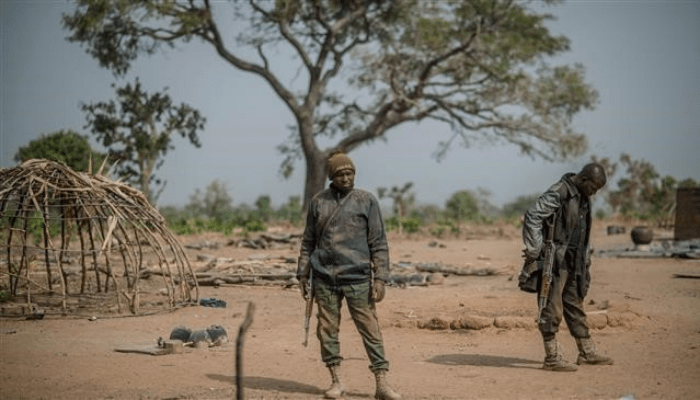
Bandits have attacked several communities in Kaduna State, resulting in multiple casualties and abductions.
The bandits launched an attack on Gefe village in Kallah Ward, Kufana Chiefdom, Kajuru Local Government Area around midnight on Thursday.
During the attack, the Village Head, Mr. Emmanuel Idan, and another local were killed. Markus Danja, a community leader, reported that the attackers surrounded the village and began shooting indiscriminately.
He said Idan was shot while trying to escape, and another individual was chased into his home and killed. The bandits also abducted several women and children, including Danja’s brother’s family.
In a separate incident, Mohammed Bashir, a journalist from Kogi State, reported the abduction of his wife and two daughters in Kaduna’s Keke community of Millennium City. They were among eight members of the same family who were kidnapped on Thursday night. Bashir has called for prayers for their safe return.
In Zaria, the bandits abducted Islamic scholar Sheikh Isma’il Gausi. The scholar was taken from his residence on Wednesday night, August 7, 2024, after the bandits fired shots to intimidate the area.
